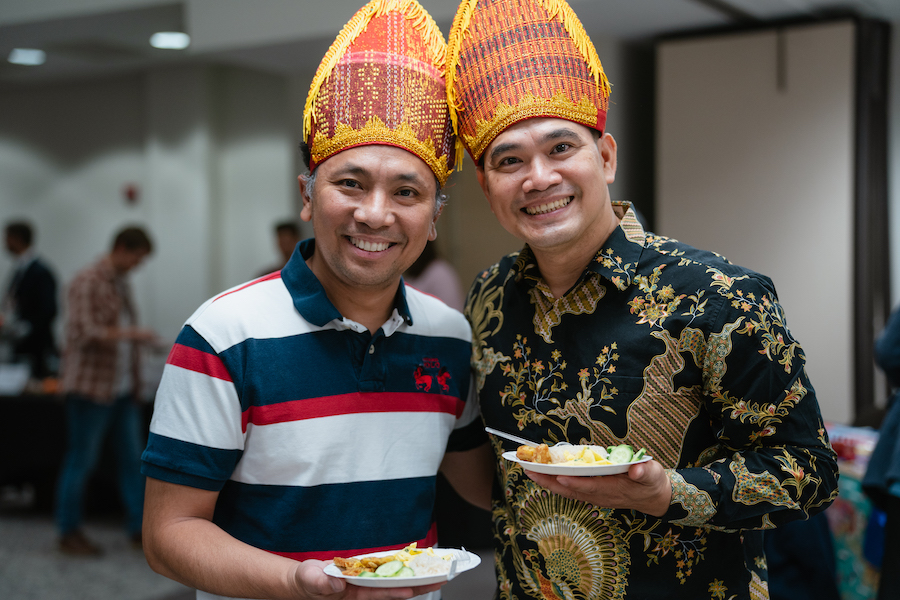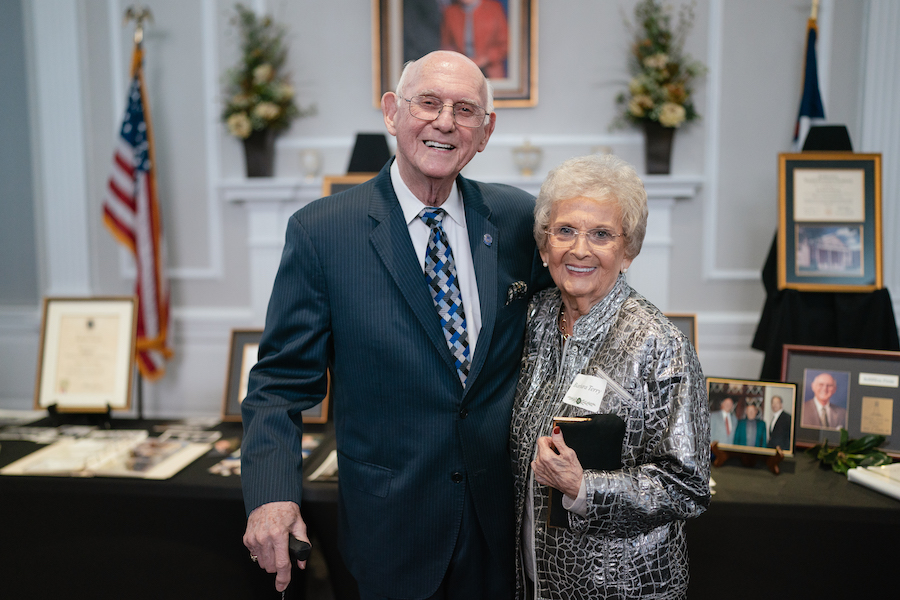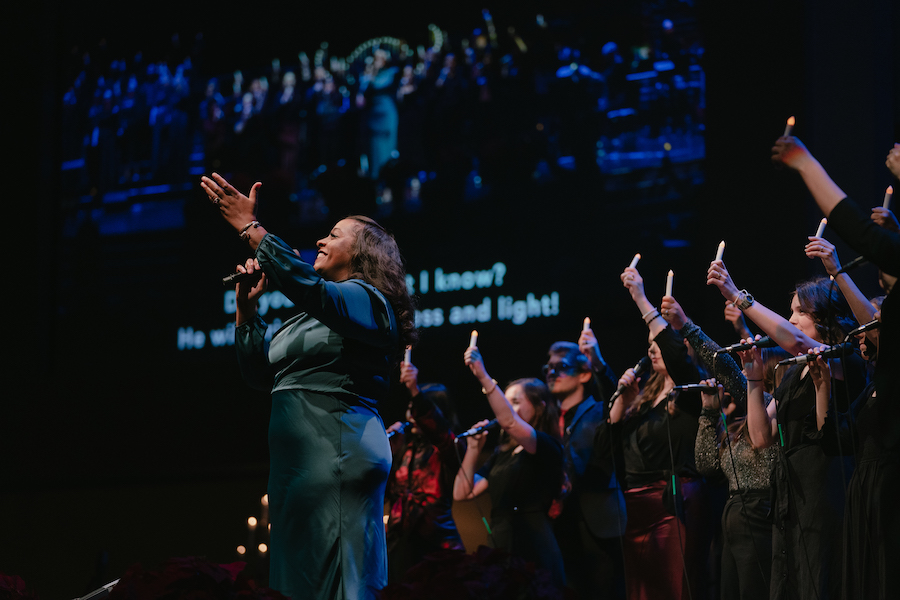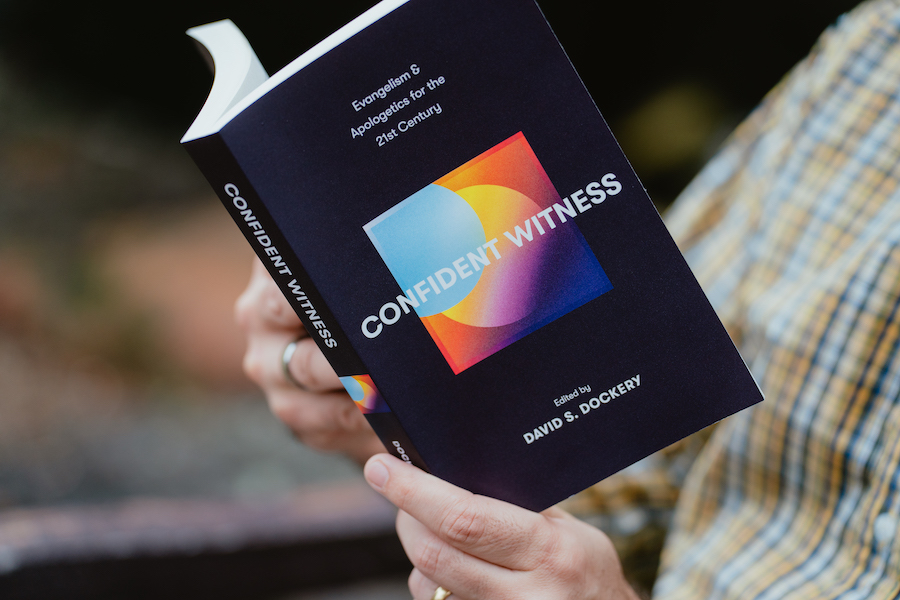Benjamin Skaug delivers first chapel sermon as Scarborough College dean
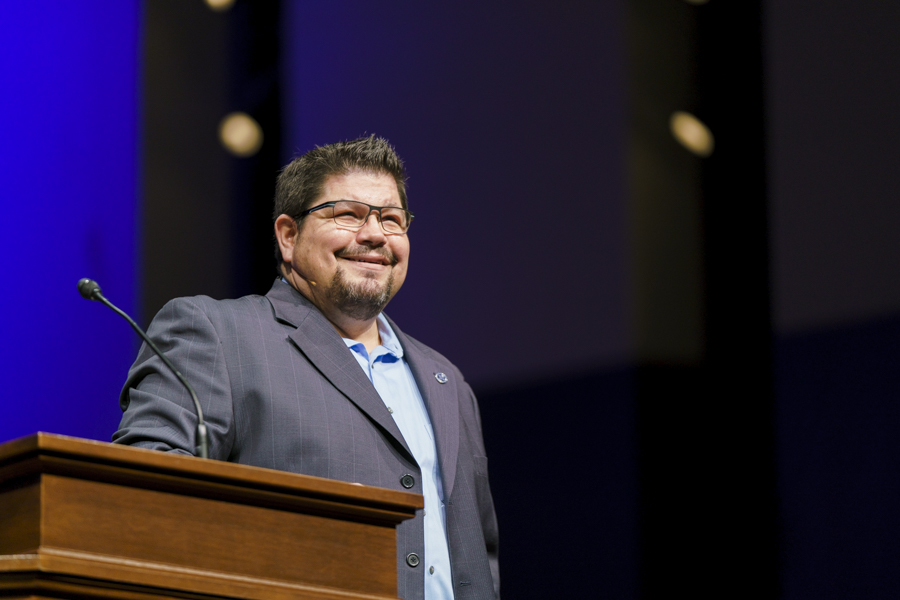
The grace of God demonstrated in the fact that Jesus took the curse of sinners should drive students to gratitude and witness of God’s “unbelievable act of love,” Benjamin M. Skaug preached in his first-ever chapel message as dean of the L.R. Scarborough College at Southwestern Baptist Theological Seminary, March 3. He was elected to the position last October, and he began his duties Jan. 1.
Introducing Skaug during the chapel service, President Adam W. Greenway reflected on the seminary’s 2020 search to find a new dean after previous dean Michael Wilkinson decided to return to full-time teaching. “God, in His kind and sweet providence, led us to Ben Skaug,” Greenway said.
“I have said since becoming president here that I believe Scarborough College is one of the best-kept secrets of Southwestern Seminary, and it is time to let that secret out,” said Greenway. “And I believe, under Dr. Skaug’s leadership, the best days of Scarborough College are ahead of us.”
Skaug preached from Numbers 21:4-9, wherein God sends poisonous snakes among the Israelites because of their rebellion against Him. When the people repent, God instructs Moses to make “a snake image and mount it on a pole.” Then, whenever someone was bitten by a snake, he could look to the bronze snake and recover.
Skaug noted that Jesus references this event in John 3:14—“Just as Moses lifted up the snake in the wilderness, so the Son of Man must be lifted up”—and thus provides a covenantal framework to better understand John 3:16 and its implications.
Preaching through the passage in Numbers, Skaug explained that when the people of God sinned, they received the covenant curse. But the manner in which it was received, he said, was a clear reminder of their sin and deserved punishment, resulting in their confession of sin and request for Moses to intercede on their behalf.
“What is the implication?” Skaug said. “That we would no longer die under covenant curses, but have the covenant curse of death removed and be given the covenant blessing of life. Moses intercedes on their behalf, and God, out of His unbelievable grace and mercy, gave them one way out.”
Directing attention back to the New Testament, Skaug pointed to Christ’s fulfillment of Old Testament Scripture.
“Here’s the beautiful thing—God, in the most unbelievable act of love, is seen sending His Son, so that at one unique point in time, Jesus Christ, who knew no sin, became sin for us,” Skaug said. “And in that moment in which Jesus Christ is put upon the cross, He is bearing the sin of all the people of God.
“As our sins are placed upon Him, and He is hammered to that tree, that wooden beam, it is a proof to all who walk by that this man—who was innocent, who was perfect, who had our sins placed upon Him in the moment—was accursed of God.”
In this defeat of sin and death, Skaug said, Christ accomplished what the people of God cannot do on their own.
“Look to Jesus Christ,” Skaug said. “As we suffer under the covenant curse of death, look to the cursed thing. Because it is there on the cross where the great exchange is played out.”
In conclusion, Skaug provided two applications. First, he exhorted his listeners to reflect upon the knowledge that salvation is not accomplished by one’s own strength or own doing, but by the grace and mercy of God.
“As we depart from this place, may every breath that we draw and may every conversation that we have be seasoned with grace,” Skaug said. “May every breath that we draw be in gratitude saying to God, ‘I praise you for the grace and mercy you had upon me. I praise you for saving me through Jesus Christ.’”
Second, Skaug stated that believers have the task of taking into the world the only message that can save people from the curse of eternal death.
“So, students, as you leave from this place, as you graduate and go wherever God will call you, you have but one message,” Skaug said. “It is of the cursed thing, Jesus Christ, who is our sacrifice, our substitute, our great high priest, our king, and our prophet. He is our everything.
“That is the message we take to the world, whether that world is across the street or across the world. May that be our task.”
